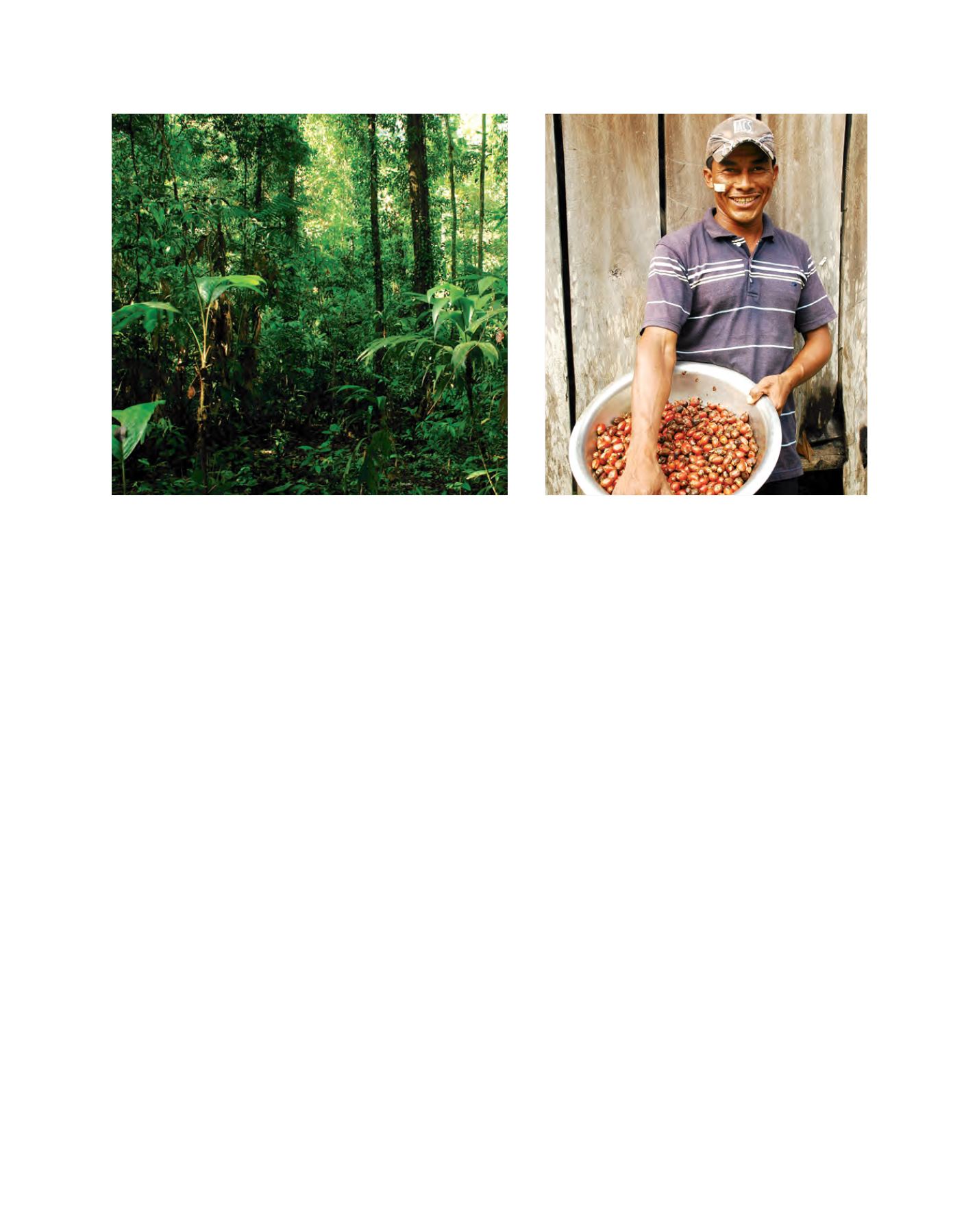

[
] 205
the Rainforest Alliance is leading work in the Río Plátano aimed at
using sustainable, community-based forestry and enterprise as the
platform for the development of high-value REDD projects.
Strengthening social structures
Adequate finance alone, however, will not ensure the future of
community forestry in this highly complex region. Ultimately, the
key to long-term success is the strength of the social institutions that
underpin both the cooperatives and UNICAF itself. Although greater
transparency and increased participation in decision-making have
been achieved in recent years, communication within and between
cooperatives still needs to be improved and problems stemming from
corruption, favouritism and collusion must be urgently addressed. The
increasing presence of organized crime rings and the associated pres-
sure to log and convert forests illegally only heighten the risks posed
by the lack of social capital.
Earlier this year, narco-driven conflicts in one of the UNICAF commu-
nities led to community conflicts, the closure of the local ICF office
and the temporary suspension of forestry activities. The only way to
prevent such incidents from becoming more common in the future is
to strengthen local commitment to community forestry through greater
participation and better benefit sharing. Improving transparency and
building social capital is the most promising bulwark against illegality
and deforestation and is therefore the central priority for UNICAF in
the near term. With threats mounting and so much at stake – but with
a record of success to build on – the forestry cooperatives in the Río
Plátano are leading in the global struggle to maintain forests as the basis
for sustainable development.
Indigenous non-timber products
A hundred kilometres from the Río Plátano, in the coastal marshes,
flooded savannas and closed forests around the Catarasca Lagoon at
the eastern tip of Honduras, indigenous Miskito people
are organizing a collective venture around the harvest
and sale of a ubiquitous non-timber forest product.
Used since ancestral times to treat skin conditions and
for hair care, the oil extracted from the fruits of the
ojon palm (
Elaeis oleifer
a), known locally as batana, has
strong international market demand and is purchased
by the Ojon Corporation, a subsidiary of Estée Lauder.
Although the harvesting and extraction of ojon has
gone on for hundreds of years, until recently, local
communities had little capacity to monitor the impacts
of harvesting or verify the quality of processing activities.
However, in close partnership with the local organiza-
tion Mopawi, which has assisted producers for twenty
years, the Rainforest Alliance has been working with
communities in this highly remote region to document
harvesting practices, improve value-added techniques
and form a collective enterprise called Moskibatana to
capture maximum benefit from the sale of ojon and
ensure equitable benefit sharing among producers. In
September 2010, over 55,000 hectares under manage-
ment by producers from 40 communities were awarded
FSC certification, the first certificate issued for NTFP
production in Honduras.
Since its formation as a legal enterprise – a major step
in its own right – Moskibatana has focused on building
local capacities to monitor ojon harvesting, adminis-
ter sales and grow its business. Following a series of
grass-roots workshops, the producers created their first
business and marketing plans and identified the train-
ing needs for community members – developments
that have engendered a greater sense of local owner-
According to a preliminary analysis by the Rainforest Alliance, community forestry
in the Río Plátano is outperforming the adjacent core protected area in maintaining
forest cover
A local worker displays sustainably harvested fruit from ojon palms;
the oil extract
batana
has a significant international market as a
beauty product
Image: Charlie Watson
Image: Rainforest Alliance
















